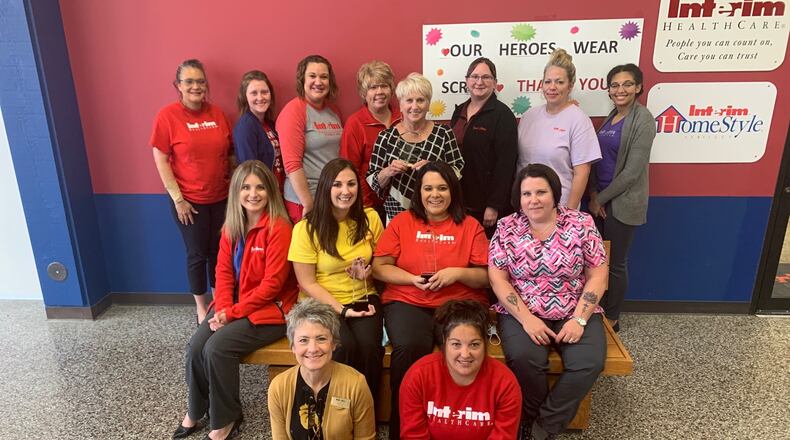Hospital leaders at Gov. Mike DeWine’s press conference have repeatedly said that they are more worried about running out of staff than running out of beds. The Ohio National Guard at times has filled in at thinly staffed nursing homes.
Leslie Kahn, CEO Of Alto Health Care Staffing, headquartered in the Dayton area, said they have about 400 to 500 active staff in the field and they’ve expanded their geographic footprint, with nurses traveling throughout the U.S.
“We play a vital role in staffing and meeting the needs of these organizations to help maintain safe patient ratios and provide safe patient care. Without staffing firms, they wouldn’t be able to continue, because we step in and fill the gap,” Kahn said.
She said the agency has had to juggle new demands such as the need to keep workers safe in the field and to follow new regulations. Some workers have older parents or family members with underlying conditions and have taken time off, she said.
“We had others that were excited and ready to go rise to the occasion and accept the challenge to her to work on these COVID units,” she said.
Staffing agency use is on the rise in all types of long-term care, and in urban, suburban, and rural settings, according to Patrick Schwartz, spokesman for LeadingAge Ohio, which represents nonprofit long-term care providers such as nursing homes and assisted living facilities.
“Our members are reporting that demand is increasing across the board, both in sites that were previously dependent on agency and sites that have not utilized agency in the past,” Schwartz said.
He said the COVID-19 pandemic has had a huge impact on staffing in long-term care settings.
“When employees test positive or are exposed to others who have tested positive, facilities become dependent on agency as they navigate having dedicated staff out for 14 days at a clip,” Schwartz said.
The staffing agencies themselves are struggling to find enough workers to fill positions.
“We just cannot get all the people. We need people,” said Amy Colbert, administrator at Interim HealthCare, which has offices in Dayton and Cincinnati.
It takes the right skills to be able to go into a facility and be comfortable in different settings and stepping into new teams, according to Colbert. They’ll hire and train new grads who are the right fit but it often takes experience to be able to comfortably be an agency nurse.
“It takes a special person to kind of go to different facilities frequently and not be part of the staff,” Colbert said. “I used to be a director of nursing at an assisted living facility and we hired in temp staff there too, and it takes that personality that can come in and be very confident in their skills.”
Kahn said she’s owned her business for almost 20 years and never saw anything like the current situation and feels thankful for the staff that has stepped up.
“We’ve never lived through any like this. And I see so many true professionals just rise up and rise to the occasion and in their bravery in providing health care to patients,” Kahn said. “I’ve just been really impressed and I feel like they need to be acknowledged.”
About the Author

